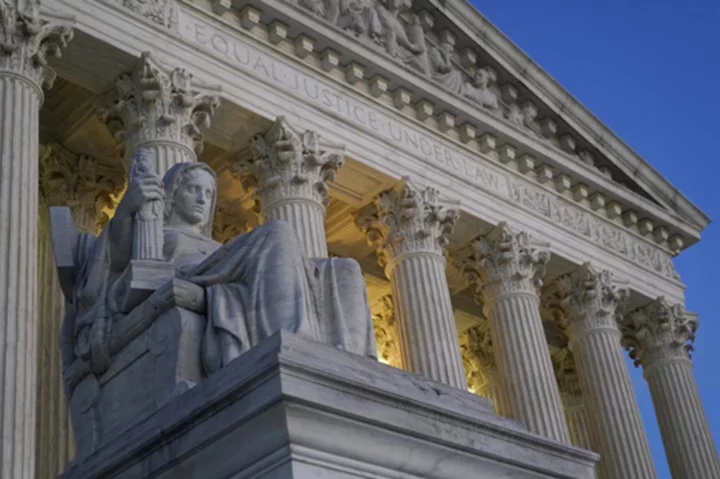WASHINGTON (AP) — The Supreme Court on Thursday ruled for the family of a nursing home resident with dementia that had sued over his care, declining to use the case to broadly limit the right to sue government workers.
The man's family went to court alleging that he was given drugs to keep him easier to manage in violation of his rights. The justices had been asked to use his case to limit the ability of people to use a federal law to sue for civil rights violations. That outcome could have left tens of millions of people participating in federal programs, including Medicare and Medicaid, without an avenue to go to court to enforce their rights.
The Supreme Court has previously said that a section of federal law — “Section 1983” — broadly gives people the right to sue state and local governments when their employees violate rights created by any federal statute.
The court by a 7-2 vote reiterated that Thursday, with Justice Ketanji Brown Jackson writing that Section 1983 “can presumptively be used to enforce unambiguously conferred federal individual rights." Both liberal and conservative justices joined her majority opinion while conservative Justices Clarence Thomas and Samuel Alito dissented.
The court had been asked to say that when Congress creates a federal spending program — giving states money to provide services such as Medicare and Medicaid — they shouldn’t face lawsuits from individuals under Section 1983. The court rejected that invitation.
The specific case the justices heard involves the interaction of Section 1983 and the Federal Nursing Home Reform Act, a 1987 law that outlines requirements for nursing homes that accept federal Medicare and Medicaid funds. The court was being asked to answer whether a person can use Section 1983 to go to court with claims their rights under the nursing home act are violated. The answer is yes, the court said.
The Biden administration had argued to the high court that Congress did not intend to allow Section 1983 lawsuits when it enacted the nursing home legislation.
The case in front of the court involved Gorgi Talevski, who was a resident of Valparaiso Care and Rehabilitation, a government nursing home in Indiana. His family said the nursing home found it difficult to care for Talevski, and so gave him powerful drugs to restrain him, then involuntarily transferred him to another facility. The facility says Talevski repeatedly acted violently and in a sexually aggressive manner and that drugs were prescribed by doctors.
Talevski’s family sued under Section 1983, saying his rights had been violated. A trial court dismissed the case, but a federal court of appeals said it could proceed. Talevski died in 2021.
The opinion was one of four the court issued Thursday, including a 5-4 ruling in favor of Black voters in Alabama in a congressional redistricting case. That case had been closely watched for its potential to weaken the landmark Voting Rights Act.

